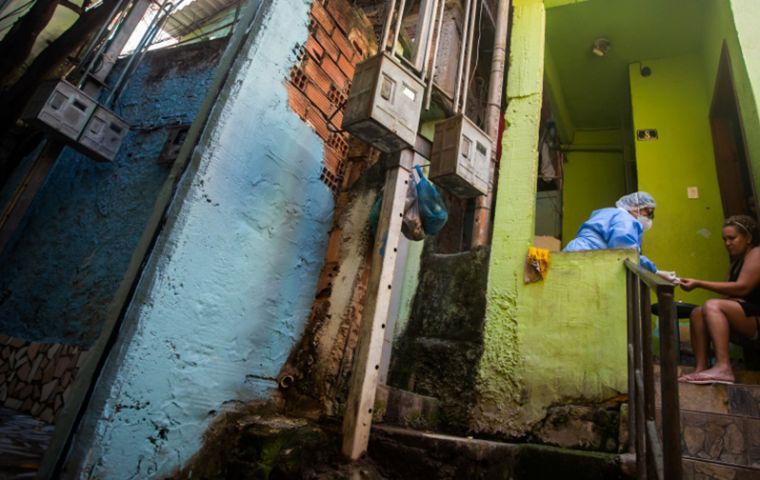MercoPress. South Atlantic News Agency
Pandemic, unemployment and inflation increasing Brazilian families debts
 ”Weakness of the formal labor market and advances from the informal sector (…) are contributing to a greater indebtedness of families”, points out the CNC release. Photo: Getty Images
”Weakness of the formal labor market and advances from the informal sector (…) are contributing to a greater indebtedness of families”, points out the CNC release. Photo: Getty Images The percentage of Brazilian indebted families reached 72,9% in August, considered a new record and a direct consequence of the economic hardships because of the pandemic, unemployment and inflation, according to a release from the National Confederation of Retail, Services and Tourism, CNC.
The release shows a 5,5 percentage points increase over the same month a year ago and 7,8 percentage points higher than in February 2020 when the pandemic was made official.
“Weakness of the formal labour market and advances from the informal sector with a high level of unemployment and high inflation are contributing to a greater indebtedness of families”, points out the CNC release.
It is estimated that some 11,9 million Brazilian families reached August 2021 with some kind of debt, mainly credit cards, but also the financing of cars and home appliances plus personal credits.
CNC also points out that besides unemployment (some 15 million Brazilian are out of jobs) and inflation, other factors have pushed families into greater debts: government measures to prevent companies from closure such as the suspension of work contracts and reduction of working hours, with a proportional drop in salaries and negative impact on incomes, forcing families to apply for credits.
Another factor is the flexibilization of restrictions imposed by the pandemic. From November 2020 to February 2021 there was a significant reduction in the number of people circulating in commercial areas because of the second wave of Covid-19. However, since then many restrictions have been eased and commercial activity has started to pick up again.
To this must be added credit access in Brazil, with interest rates “relatively low”, which has helped arrears to remain rather stable with 25,6% of families with unpaid bills.
But the Brazilian central bank in recent months has started to increase the basic Selic guidance rate to 5,25% annually which as anticipated is expected to continue the trend.
“Although arrears and delinquency so far remain under control, the jump in interest rates is expected to increase the risk indicator, as of now and into the future”, warns the CNC release.




Top Comments
Disclaimer & comment rulesCommenting for this story is now closed.
If you have a Facebook account, become a fan and comment on our Facebook Page!